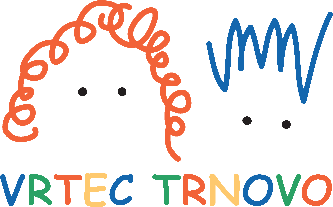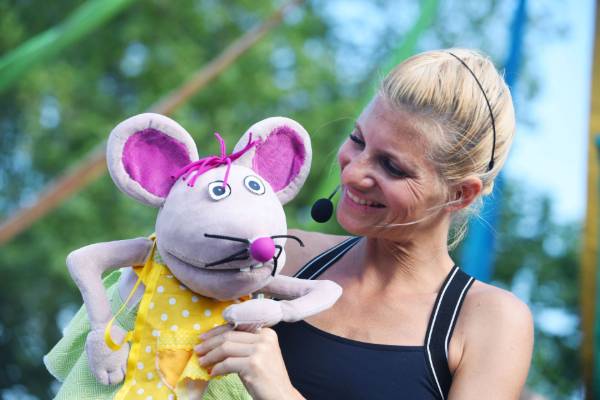A Pedagogical puppeteer enhances the quality of didactics by exchanging experiences with educators locally and globally, creating open and free learning environments
Since 2018, Trnovo kindergarten has carried out a two-year European project titled Pedagogical puppeteer. During the project, 22 educators actively participated in various courses in Greece, Italy, Spain, Portugal, Malta, the Netherlands, and Ireland. By taking part in these mobility activities, the educators shared their knowledge with other participants and gained key competences for implementing the role of a pedagogical puppeteer. This international exchange was beneficial to all the participants as well as to the course providers.
We have extensively explored and engaged with the field of arts and multidisciplinary approaches to expressing pedagogical creativity. Our key finding was that the Project Work with a Puppet developed by Trnovo kindergarten has indeed become a part of international preschool education. These new discoveries revealed new challenges for improving the quality of work with young children and co-workers.
Understanding different approaches to comprehending art, along with new impressions and expressions from participants and course providers, has confirmed how irreplaceably important comprehensive literacy development is for the youngest (social and emotional, cognitive and imaginative, with the basics of self-judgement and shared reflections on experiences). The established communication link between the child and the puppet enhances the understanding of all learners regardless of the learning environment. The puppet, in dialogue with the child, scaffolds the child’s cognitive development in a way that educators cannot achieve. The puppet penetrates deeper into emotions and thus also into cognitive and imaginative reactions. The puppet is an indispensable medium even remotely, as even during the pandemics, the children reported that the puppet protected them, encouraged them, played with them and entrusted itself to their care.
The experience of collaborating on the international project also affected the technical construction of the puppet, the quality of animation, animation techniques and the quality of communication/dialogue with the puppet. This, in turn, influenced the creation of follow-up activities and the child’s creative mood.
We can confidently say that we implement an open kindergarten curriculum, and our updated learning plan, in the form of literary-didactical story, significantly enhanced the pedagogical play of both children and adults. This play represents a fundamental method of exploring the real world. An educator – acting as a pedagogical puppeteer – bridges spontaneous play and real-world experiences, creating a powerful creative (syn)energy.
A Pedagogical puppeteer enhances the quality of didactics by exchanging experiences with educators locally and globally, creating open and free learning environments that nurture the young minds of children and the pedagogical spirit of educators. The puppeteer facilitates exploration and discovery of various life themes. Creating means freely handling materials for personal and collective advancement. The children and educators courageously explore the nature of the mind in terms of both understanding and transforming their prior knowledge. The pedagogical puppet(eer) is linked with the creation of new content and methods. In this regard, the international experience has enriched us personally and refined us professionally.
The skills, knowledge and experience gained by educators during the project have been shared with other environments through active participation in one of the pilot actions within the NewHoRRIzon project, part of the Horizon 2020 program.
As part of this framework, our kindergarten hosted an international workshop on April 1st and 2nd , 2019, with 13 participants from six different countries (Germany, Austria, Spain, Finland, Australia and the USA). The participants observed the exploratory activities in the learning labs of the Kolezijska unit, where children tested, observed, measured and interacted with various materials, all while being supported by the puppet and the pedagogical puppeteer.
Within the following year, we expanded our activities, placing educators in new pedagogical roles and sharing their knowledge with colleagues in French and Greek kindergartens. The Pedagogical Puppeteer project continued to evolve through the new Erasmus+ project named QUEST, which has been extended to 2021 due to the pandemics.

